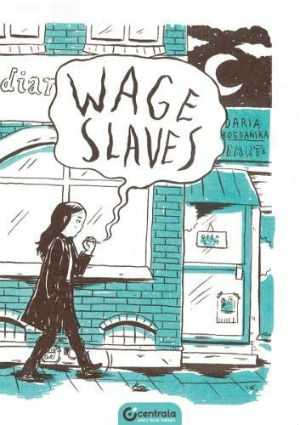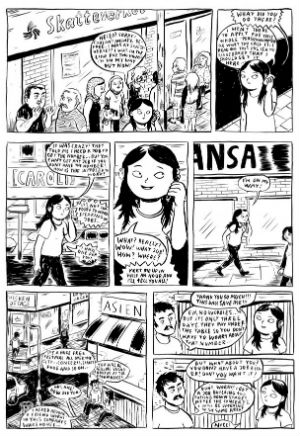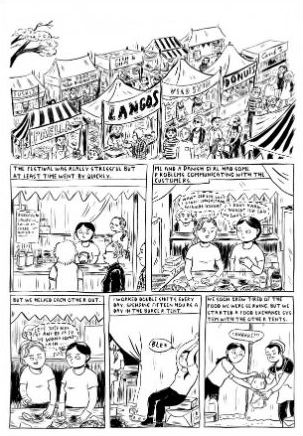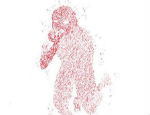 Wage Slaves brings an audacious openness to some unknown realities: being an immigrant and having very little money, and the ease at which certain employers and institutions can exploit these facts. Whilst these concepts in and of themselves may be familiar ones, Daria Bogdańska’s narrative brings attention to the myriad of consequences these situations can have for an individual, and the dire emotional states their culmination can result in.
Wage Slaves brings an audacious openness to some unknown realities: being an immigrant and having very little money, and the ease at which certain employers and institutions can exploit these facts. Whilst these concepts in and of themselves may be familiar ones, Daria Bogdańska’s narrative brings attention to the myriad of consequences these situations can have for an individual, and the dire emotional states their culmination can result in.
Wage Slaves recounts a time when Daria had just moved to Sweden to study cartooning, only to find out that that was apparently the easy part, and although her dream was realised, it would be a lot harder to actualise in reality. Indeed, Bogdańska’s semi-biographical work calls out the exploitation of the most vulnerable in Sweden: immigrants who are stuck in an impossible cycle, unable to find work without a social security number and yet unable to get a social security number without having proof of work.
For those who have been unemployed, the inescapability and seeming hopelessness of searching for a job will be familiar, and Bogdańska makes sure you are aware of it throughout; revealed via many long, forlorn conversations with her friends. This exposition is captured succinctly in the title itself, ‘Wage Slaves’, which aptly points out how the consequent employment these immigrants are forced to take on is really slavery in disguise. Both slaves to their crooked employers and slaves to their own desperation. For many, there is no alternative. If you protest, you are fired, and sometimes that’s not the end of it either.
The panels themselves reflect the overwhelming nature of this situation. For example, Bogdańska is not afraid to have the speech bubbles overpower a panel, almost spilling over the illustrations crammed in around the edges. At the same time, the smaller size of these panels tells us Bogdańska’s story in a rapid-fire, scene-by-scene narrative. These techniques combine to reveal the quick and urgent nature of the conversations that are had; the speedy succession of dialogue and the size of the bubbles reflects important conversations that simply need and should be taking up more space. Furthermore, their pervasiveness echoes the way these struggles seep into all aspects of one’s life.
In Wage Slaves, Bogdańska captures how distressing it can be to search for a new job, especially in a new country. This is definitely an important read if either of these have ever been applicable to you, but also imperative for those who have no relation to them; as a reminder of this privilege, and a step inside how bad things can be for others.
Daria Bogdańska (W/A) • Centrala, £14.99
Published in Canada by Conundrum Press priced $20.00
Review by Rebecca Burke
















